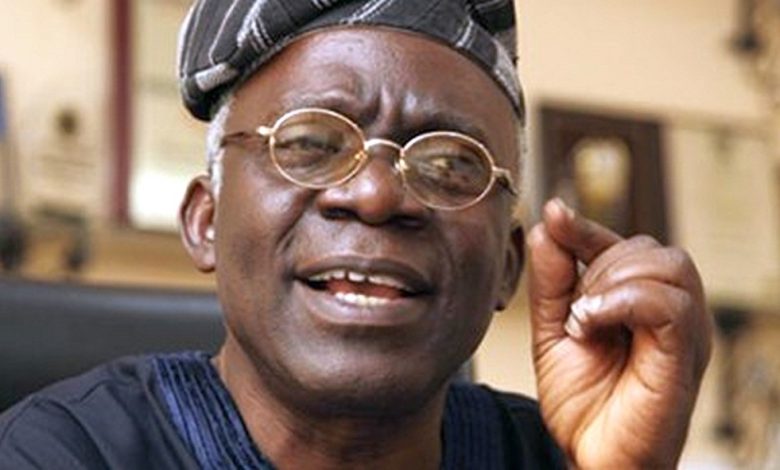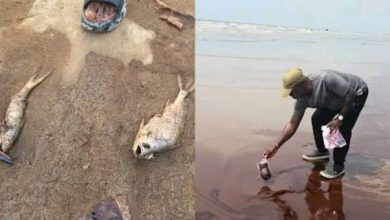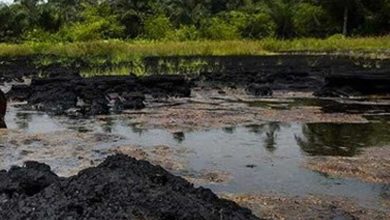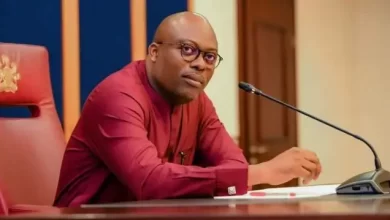Youths Challenge Falana Over Claim of FG’s Role in Killing of Ogoni 4

Thirty-one years after the brutal murder of the four prominent Ogoni leaders now collectively known as the Ogoni 4, a new controversy has erupted—this time over allegations made by renowned human rights lawyer, Mr. Femi Falana, SAN, linking the Federal Government to the killings.
The victims—Chief Albert Badey, Chief Edward Kobani, Chief Samuel Orage, and Chief Theophilus Orage—were lynched on May 21, 1994, in Giokoo community, Gokana Local Government Area of Rivers State, during a violent uprising that marked one of the darkest chapters in the Ogoni struggle.
Speaking at a memorial lecture in Port Harcourt last week in honour of the late environmental activist, Ken Saro-Wiwa, Falana alleged that the killings were orchestrated by the Nigerian state under the late General Sani Abacha regime.
According to Falana, “The Nigerian state brought young people, instigated by them, paid by them, to kill the four leaders—Chief Edward Kobani and three others. It was the Nigerian state that killed them. Before any investigation began, the then military governor of Rivers State, Lt. Col. Dauda Musa Komo, publicly declared that Ken Saro-Wiwa and other MOSOP leaders would be held responsible for the Giokoo killings. The homeboys killed their leaders, but the state held others vicariously liable.”
Falana’s comments have since sparked a wave of backlash across Ogoniland, with youth groups and community leaders accusing him of distorting history and demanding evidence to back his claims.
The Gokana Unity Forum (GUF), a socio-cultural organization representing young professionals and community activists from the area, issued a strongly worded statement dismissing Falana’s remarks as reckless, unfounded, and dangerous.
According to the Forum, “Femi Falana’s claims are strikingly bereft of any semblance of evidence. As a seasoned lawyer and Senior Advocate of Nigeria, he should understand the gravity of making such serious allegations without credible proof. His assertions, devoid of factual basis, are a mockery of both truth and justice.”
The statement, jointly signed by Mr. Goodluck Gbaraage, Anthony Tabu, Chris Barisi Barigbon, and four others, challenged Falana to publish verifiable evidence linking the federal government to the 1994 killings. The group demanded that Falana disclose the identities of those allegedly contracted to carry out the murders, the amounts purportedly paid for the act, the officials who authorized and facilitated the payments, and the details of where and when such transactions allegedly took place.
The Forum further recalled that Falana had served briefly as a defence lawyer during the trial of the Ogoni 9, including Ken Saro-Wiwa and eight others, before withdrawing from the case. They argued that his new claims directly contradicted his role and statements at the time of the trial.
“Falana’s current position smacks of revisionism,” the statement continued. “His sudden attempt to rewrite the narrative after three decades undermines the pain of victims’ families and threatens the fragile peace that has been painstakingly built in Ogoniland.”
The group warned that the activist-lawyer’s comments could reopen old wounds and derail the reconciliation efforts being championed by President Bola Ahmed Tinubu’s administration.
“Falana’s inflammatory rhetoric has the potential to destabilize our hard-won peace. At a time when Ogoni people are focused on healing, development, and inclusion, we must not allow unfounded accusations to drag us backward,” the Forum cautioned.
As the debate reignites over the events of 1994, observers say Falana’s allegations have touched a raw nerve in the Niger Delta, reopening deep questions about justice, state complicity, and the long shadow of the Ogoni struggle.
For now, one thing is clear — the ghosts of the Ogoni 4 still haunt Nigeria’s conscience, and the truth about their deaths remains as contested as ever.




